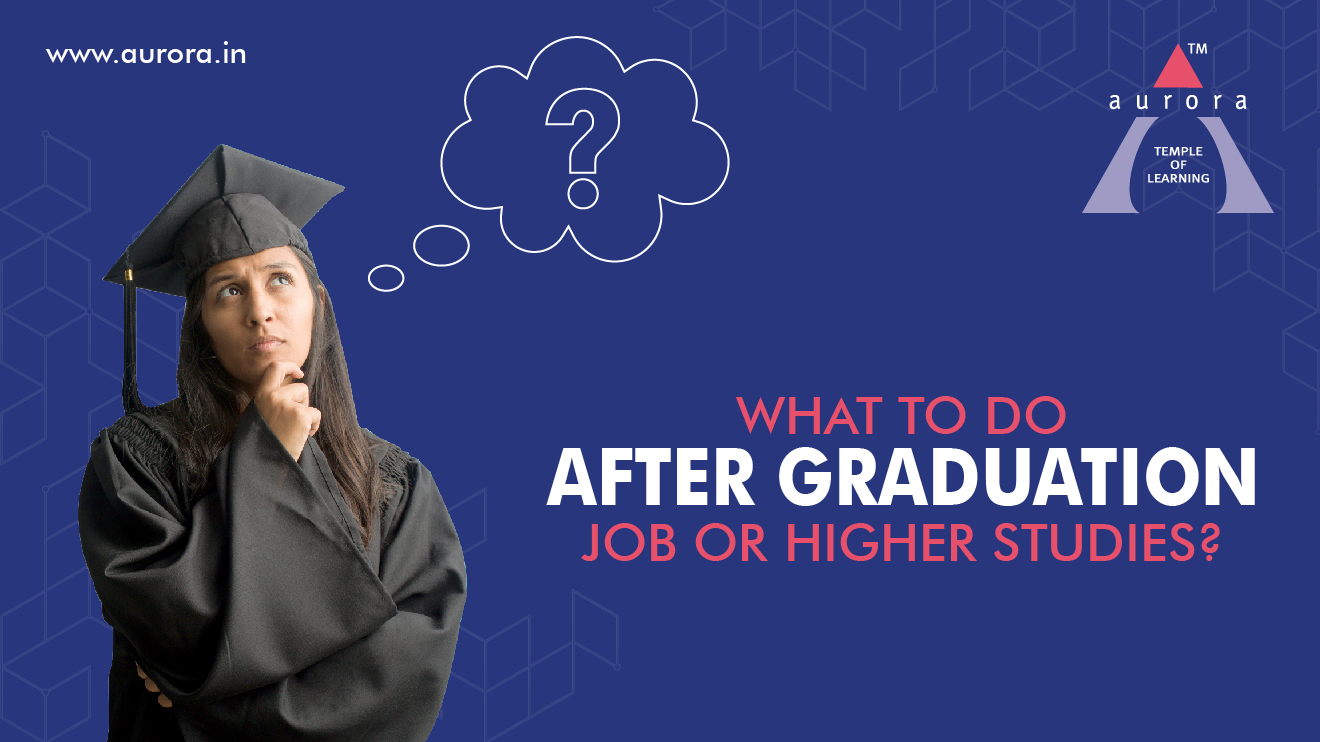Blog
What to do after Graduation: Job or Higher studies?

Making the right choices is crucial since they will shape your life because they happen throughout your early years. The decision between acquiring a job and attending higher studies can be more accurately expressed because it depends on various factors. It is entirely subjective and unable to provide a clear judgment.
If you need work immediately, a job can be your most excellent option. However, the best course of action is to pursue higher education if you are financially secure and eager to learn more. When deciding whether you are a graduate or an undergraduate, it is also crucial to consider your academic standing. According to the tradition of courses after graduation.
The two most crucial variables you must consider while deciding are the cost of further education and your long-term job objective.
Cost factor
It would be best if you kept in mind that pursuing higher education comes at a cost. In addition, if you ignore logic in favour of passion, you might have to leave a course early, which would result in wasting time, money, and effort. As a result, you must consider two essential factors: being realistic and assessing the impact of your decision on the current circumstances.
Career goal
Making the best decision between a job and higher education requires having a clear idea of your career after graduation. For instance, you no longer need to pursue further education if your goal is to gain experience in the workplace rather than information. On the other hand, education is crucial if you intend to work as a researcher or teacher shortly.
Financially stable students could find the decision more challenging because they can enrol in any course but need help deciding which is the best. Since they may only obtain good pay by graduating from a prominent university, continuing their education may be their best course of action.
However, if you have a higher degree, you may be sure that you will find well-paying work outside the university. Therefore, more education is your best option if you want to ensure a fair wage. However, choose the option for higher education straight away if you want to conduct research in your selected field.
Advantages Of Higher Education
Learning Process
Higher education may be helpful if you wish to advance your knowledge in your profession and enter the research or core industries. According to many experts, researchers and entrepreneurs are highly similar in that both are flexible enough to operate within their respective fields.
Opportunities
Some opportunities that are not available after a job become available through further higher education. For instance, most business organizations must provide recent graduates with management positions. Nevertheless, earning an MBA can give you access to these opportunities. In addition, most teaching positions are open to those with advanced degrees.
Experience and Salaries
One of the most pervasive fallacies is that candidates with job experience are valued more highly than recent graduates of post-graduate programs. In addition, realizing that formal education also incorporates form experiences is essential.
PG levels teach you complicated concepts and problem-solving skills compared to life after graduation. As a result, the offered earnings are on a level with or higher than those for graduates with work experience.
Advantages Of A Job
Learning Process
In a job, learning is assimilated very differently. You don't learn here in a safe environment like you would in higher education. Your failures and successes will positively and negatively impact your job.
Additionally, it is an advanced method of comprehending the company. Managerial-level roles within their firms are only awarded to a select few exceptional people who perform exceptionally well.
Opportunities
The organizations who visit your college and your performance will determine your opportunities. If your course performance could be more robust, you will have few possibilities in your career after graduation. Most candidates receive offers for entry-level roles because most businesses actively evaluate the risk of recruiting new employees.
Experience and salary
Your first job should focus more on helping you identify your strengths as an employee and how you may benefit any company. Then, after figuring it out and gaining experience (for 1.5 to 2 years), you can apply for better jobs and compensation.
Conclusion
Ultimately, everything comes down to how you decide to view yourself along the road of life. For example, making the best decision between a career and more education would be a piece of cake for you if you were fully aware of your priorities in life after graduation.
